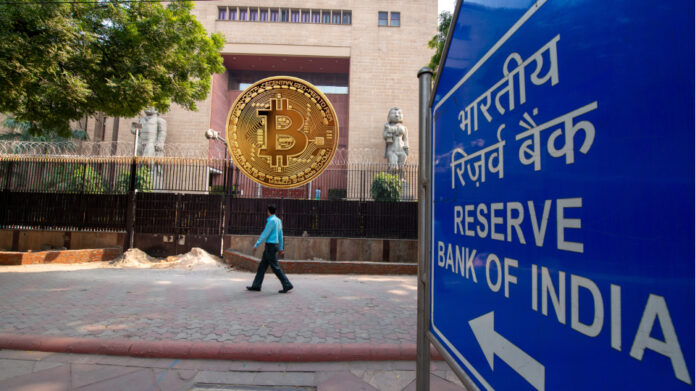The Reserve Bank of India has released its Financial Stability Report, in which it says that crypto needs the same regulation applicable to traditional finance.
No change on crypto from the RBI
Noises coming out of the Reserve Bank of India (RBI) have not changed in tone at all as regards all things crypto. The latest salvo to be fired at crypto came in the form of the bank’s Financial Stability Report.
It does seem rather odd, given the incoming recession, which was undoubtedly caused by central banks printing far too much currency. This in turn sent inflation spiralling up across the world, impacting on the ordinary citizen by reducing their purchasing power by another huge amount.
Therefore, for the leading bank in India to spend so much time and effort on maligning such a tiny and still fairly inconsequential asset as crypto might appear to be a case of bringing in a cannon to kill a fly.
However, the RBI is not alone in its endeavours. Central banks from across the world also seem eager to join in the crypto-bashing, given that crypto is in the midst of a particularly harsh bear market, and various centralised exchanges have collapsed, they are having quite a field day.
Despite the entire crypto market cap amounting to less than $800 billion, the RBI said in its Financial Stability Report:
“Although the crypto assets market remains volatile, there have not yet been any spillovers onto the stability of the formal financial system. The accumulated experience, however, suggests that they form an unstable ecosystem and there is growing evidence that they remain highly concentrated and interconnected,”
3 options to deal with crypto
The RBI stated in the report that in its view there were 3 options that might be applied to crypto. The first option, and the only one with any vestige of credibility, is to regulate crypto the same as any traditional finance company.
Crypto is a completely new asset class that has brought incredible innovation to finance. Should it be allowed to continue with fair and well thought out regulation that protects investors while encouraging more innovation, then there wouldn’t be many who would argue with it.
Option number two is to completely ban it given (in the bank’s view) that it has “negligible” real-life use cases. However, the bank does acknowledge that other countries might choose not to go along with this given their differing regulatory approaches and their laws on individual rights.
Option number three was to just allow crypto to collapse and to let it become “systemically irrelevant”. For all that, crypto undeniably has use cases and investors will be keeping an eye on it as fiat currencies slip further in value and begin to lose trust across wider populations.
With this in mind, it could be expected that central banks and regulatory agencies across the world might seek to combine their approach to crypto in an effort to crush it enough that their central bank digital currencies (CBDCs) can be implemented.
Disclaimer: This article is provided for informational purposes only. It is not offered or intended to be used as legal, tax, investment, financial, or other advice.
Credit: Source link






















 Bitcoin
Bitcoin  Ethereum
Ethereum  Tether
Tether  Solana
Solana  USDC
USDC  Lido Staked Ether
Lido Staked Ether  XRP
XRP  Dogecoin
Dogecoin  Toncoin
Toncoin  Cardano
Cardano  Shiba Inu
Shiba Inu  Avalanche
Avalanche  TRON
TRON  Wrapped Bitcoin
Wrapped Bitcoin  Bitcoin Cash
Bitcoin Cash  Polkadot
Polkadot  Chainlink
Chainlink  NEAR Protocol
NEAR Protocol  Polygon
Polygon  Litecoin
Litecoin  Internet Computer
Internet Computer  Uniswap
Uniswap  LEO Token
LEO Token  Dai
Dai  First Digital USD
First Digital USD  Ethereum Classic
Ethereum Classic  Aptos
Aptos  Hedera
Hedera  Stacks
Stacks  Cronos
Cronos  Mantle
Mantle  Filecoin
Filecoin  Stellar
Stellar  Renzo Restaked ETH
Renzo Restaked ETH  Cosmos Hub
Cosmos Hub  OKB
OKB  XT.com
XT.com  Render
Render  Immutable
Immutable  Pepe
Pepe  Arbitrum
Arbitrum  dogwifhat
dogwifhat  Wrapped eETH
Wrapped eETH  Bittensor
Bittensor  Maker
Maker  Optimism
Optimism  The Graph
The Graph 
